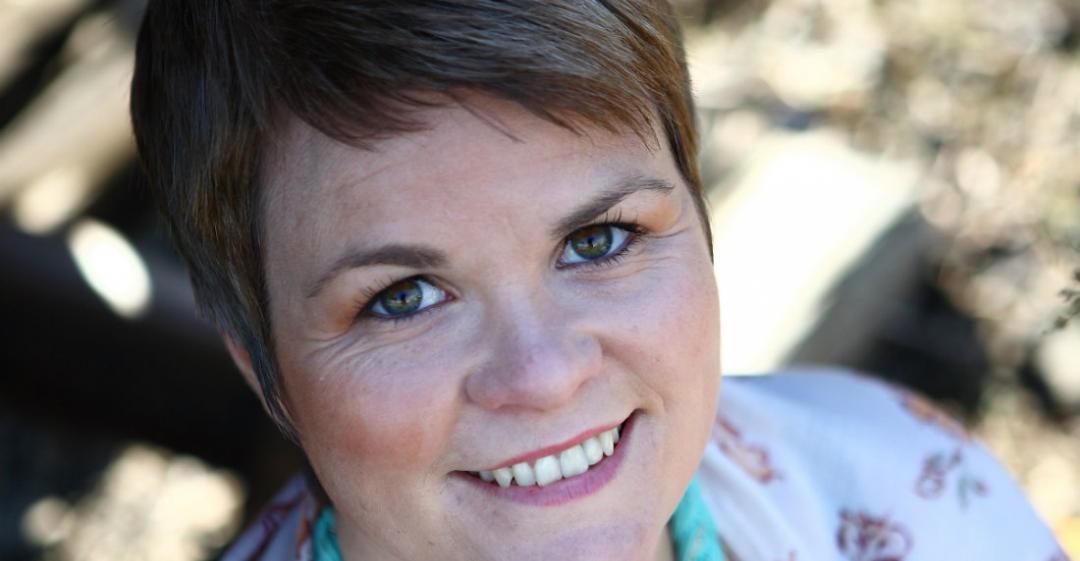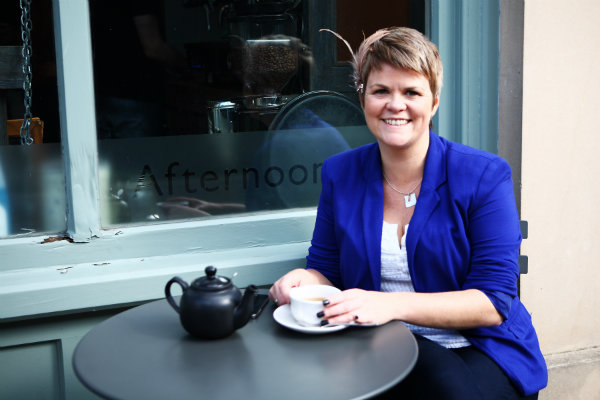“I'd been feeling unfulfilled in my job for years. I knew there must be 'something else', but I just didn't know what.”

What work were you doing previously?
I worked as a Media Officer for charities and not-for-profit organisations.
What are you doing now?
I have two businesses.
One is Write and Reach, which provides PR support and training through digital courses to small business owners. The second is called Bristol Papillon, where I sell handmade jewellery online and at local markets in Bristol.
I also work on archaeology projects as and when I have the opportunity.
Why did you change?
I'd been feeling unfulfilled in my job for years. I knew there must be 'something else', but I just didn't know what. I'd also always wanted to be my own boss and build a mostly location-independent business, as I love travel.
I was made redundant from a charity job, then a couple of years later the next charity I worked for also had widespread cuts and our team was put at risk of redundancy. This was very stressful and coupled with a two-hour commute to work each day, I got very run down and started suffering from anxiety. In the end I decided not to re-apply for a job in the team, so I found myself unemployed.
A colleague suggested I look into freelance work, which I thought would just be a stop-gap until I found a new job, but then I did a free business course and started learning about digital entrepreneurship and loved it.
At the same time I'd started a creative blog and making jewellery for the first time in years – this was something I'd always loved as a child but totally forgotten about. So, about three years ago now, I found my first freelance clients and had my first stall selling jewellery at a market in Bristol.
When was the moment you decided to make the change?
It was gradual, but when I decided not to apply for any more conventional jobs, including the one I was working in, I felt a huge weight being lifted off my shoulders.
Are you happy with the change?
Yes, I love it.
At times it's hard not knowing exactly where the next pay cheque will come from, but I now have several different streams of income and can put the extra hours in when I need to. At the end of the day, I didn't have 'stability' working permanently in the charity sector anyway, so being able to work on short projects and build the online side of my business is ideal.
I had lost my creativity totally, and going through all the stress of redundancy actually helped me find it again!
What do you miss and what don't you miss?
I really don't miss having to sit in a quiet office and follow such rigid routines all the time. I don't miss feeling like my life was slowly slipping away one second at a time, as I wasn't living to my full potential.
Occasionally I miss the guaranteed pay cheque at the end of each month, but then, as I learnt, nothing is truly guaranteed.
How did you go about making the shift?
The first step was setting up a profile on People Per Hour, an online marketplace for freelancers and people looking to hire.
I started offering press release services, and blogging. I had a client within the first week of putting my profile up and it grew from there.
I started to get interested in the business side of things as I was lucky to get a place on a free 'Introduction to business' course run by Outset Bristol. I have to credit my first tutor on that course for opening my eyes to a whole different world. I met lots of other people like me, looking to start something up and started to meet them regularly and to go to informal networking events.
Towards the end of that year I had a well-paying freelance gig in Bristol, along with a couple of blogging clients in London, which enabled me to save enough money to fulfil another dream the following year – working on an archaeology dig in the Caribbean for three months. I had worked abroad before, but this project was like a dream come true for me.
In the months that followed, I got a website set up, and started to promote different services myself too. The year after that I also started mapping out my first digital course, The Publicity Program, which took a huge amount of effort and time.
My jewellery business started when I made some earrings for my sister and a friend for their 30th birthdays. When they loved them and actually wore them I took that as a sign I must be on the right track. So I started experimenting with different styles, set up another website for Bristol Papillon, and had my first stall at a market in a local pub, with only about ten pieces of jewellery on it. After my Caribbean trip, I decided to go for it and attended even more markets in Bristol, building up more stock this time.
With Write and Reach, it took me a few years to nail my branding and to be happy with the services I am offering – it's only really been this year that I've felt totally on track with it. I launched The Publicity Program, my digital course, for the first time in March and it was a massive learning curve. The whole thing has been constant learning and trial and error to find what works and what doesn't.
What didn't go well? What 'wrong turns' did you take?
In hindsight, going away to the Caribbean for so long did slow the progress of both my businesses down.
Although I'd carried on my blogging clients whilst away, when I got back I had to find a part-time job fast to get the money rolling back in. I don't regret going though, because it was one of the best experiences of my life.
Sometimes it's been hard to put my 'all' into growing the business as much as I should. I think this is as much to do with mindset and lingering self-doubt as anything else. Being a bit scared to fully take the leap. But then when I think about it rationally I do really believe things happen in good time, when they are meant to – you just have to give them a bit of an extra push sometimes.
Procrastinating on ideas and spending too long looking outside and feeling like everyone else is so much more sorted than me has slowed me down. I also realised I go through peaks and troughs, during the troughs it's easy to think "That's it, I quit!", but I've learnt to just ride the feeling out, not feel bad for thinking that, and it does pass, then I can get back to feeling excited and full of ideas again.
How did you handle your finances to make your change possible?
Probably not as well as I should have to be honest.
I was lucky that I was paying extremely cheap rent at the time, but in some ways the fact I didn't have any savings forced me to get out there and find other ways of making money as quickly as possible.
What was the most difficult thing about changing?
Finding one idea and sticking to it!
It's so easy to get side-tracked by a million and one other ideas, but as soon as I started really concentrating on one or two offerings everything fell into place and I could really put my all into them.
What help did you get? 
My boyfriend, friends and family have been so supportive.
In particular, they stood with me at freezing cold markets without any pay, just showing their support. I can't thank them enough.
I also did two business courses with Outset Bristol, and have joined the Female Entrepreneur Association which has been so helpful for knowledge and motivation.
What resources would you recommend to others?
The Female Entrepreneur Association is great for learning basic business skills and for online networking.
Marianne Cantwell's Be A Free Range Human is a fabulous book.
One of the ladies I met through networking recommended Leonie Dawson's Shining Life & Business Workbooks and I found these incredibly helpful.
What have you learnt in the process?
Things never quite pan out as you expect, but that's half the fun.
It's really important to meet and chat with like-minded people, and if you can't get out of the house much, then Facebook groups are amazing for this. I have a whole other online world of friends and support now.
When you have an idea you believe in, stay as blinkered as possible and do everything you can to make it happen.
What would you advise others to do in the same situation?
Go for it!
You can start building a business on the side whilst working. If you are able to go down to part time then that's ideal. I've had several part-time or project-based jobs along the way and I think it's really important to remember this is absolutely fine. We are all so different and so you need to find what works for you and your lifestyle.
Also, track all your finances on a spreadsheet. I used to think this was the most boring thing to do, but now I love it and I can see exactly what I need to do and when.
To find out more about Rebecca's PR services, visit www.writeandreach.com, and for her creative offerings, visit www.bristolpapillon.com.
What lessons could you take from Rebecca's story to use in your own career change? Let us know in the comments below.



